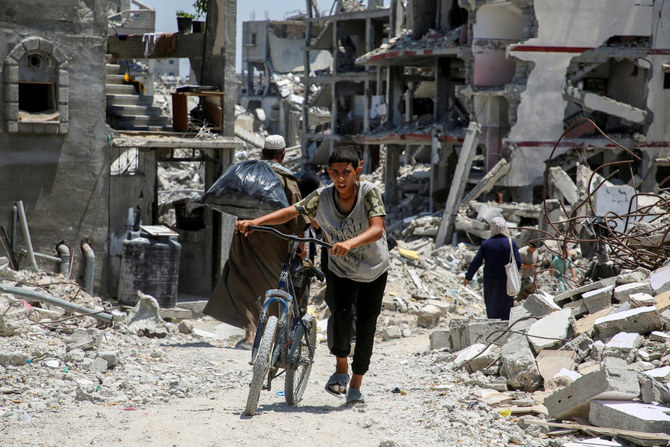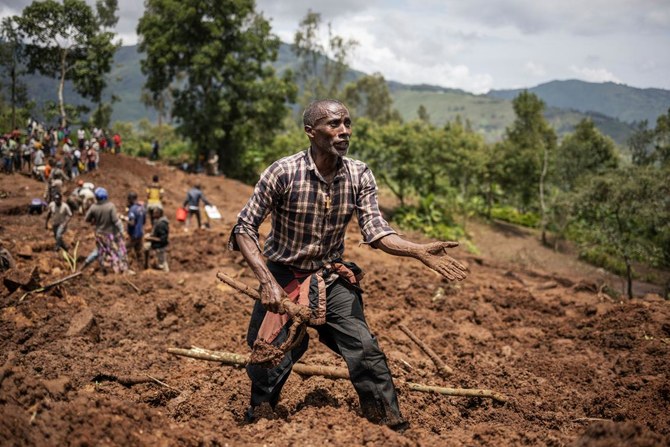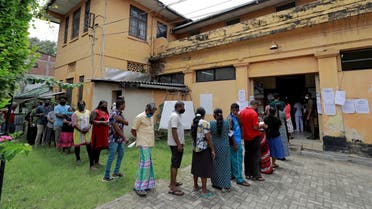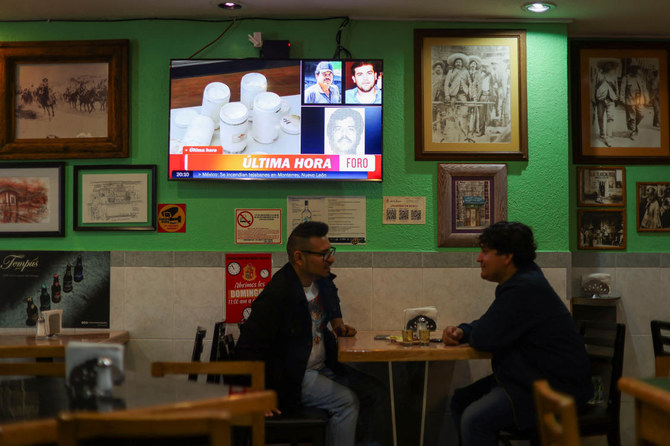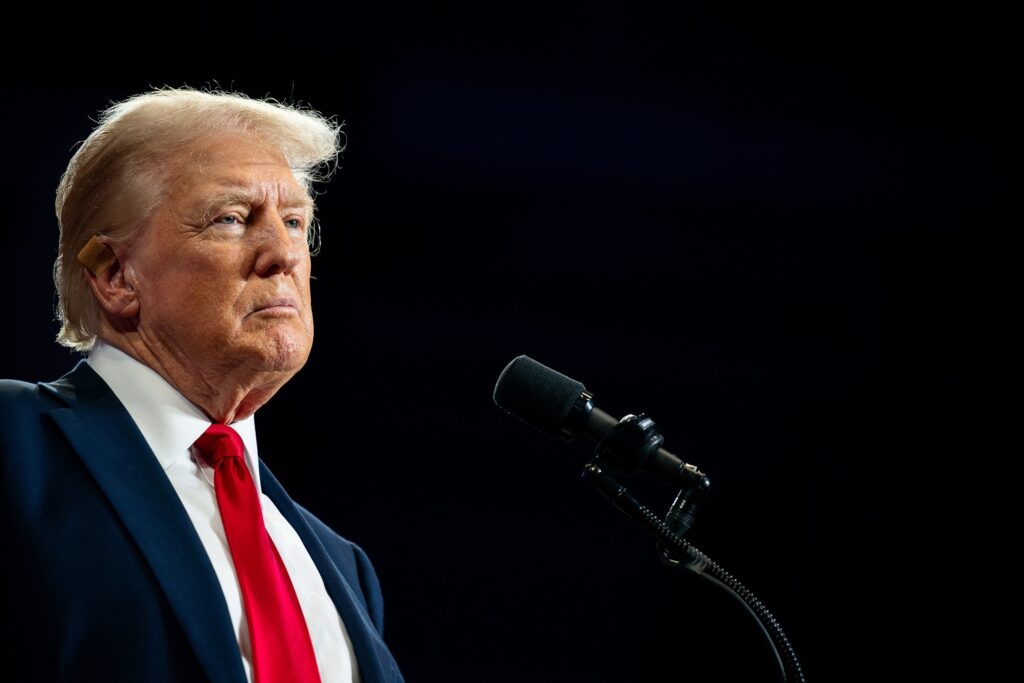
BUCHAREST (Agencies): “There is a quote attributed to Mark Twain: it’s easier to fool people than to convince them that they have been fooled,” says Marius Mioc, a self-published Romanian author, as he clutches two copies of his latest book: Covid, The Lie of The Century. “This is not a real pandemic, but hysteria, and it is driven by politics and the want to make money.”
Despite having previously sold his books about Romania’s 1989 revolution against the former Communist regime in local bookshops, Mioc found retailers did not want to stock his latest work, which was first published in 2020 and costs 45 RON (just more than $10). That, he says, is all part of the conspiracy. In Romania, which has among the lowest spending on healthcare in Europe and a health system that is consistently ranked the worst in the European Union, doctors are bracing for a surge of the fast-spreading Omicron variant.
Head of the communicable disease centre, Adriana Pistol, recently warned a peak of 25,000 daily cases was soon possible – a significant jump from the current 1,800 or so cases per day now in the country of 20 million. Numbers in some Western European countries may be higher, but so too are their populations. Romania’s is the EU’s second-least vaccinated nation, after its neighbour, Bulgaria.
Approximately 60 percent of those over 65 or living with chronic diseases remain unvaccinated. Less than 41 percent of the adult population as a whole have received two jabs as other parts of the world have moved onto third and, in Israel’s case, fourth shots. The resulting low level of immunity had grave consequences late last year, with almost 11,000 people killed during a devastating fourth wave of infections that peaked in early November.
However, with reasons for opposing vaccines ranging from concerns about possible side effects to the belief that the entire pandemic is a hoax, there is no easy path to tackling the problem. “There is no single ideology against vaccination, there are a lot of threads of people who have their reason to oppose and fear,” said Andrei Tiut, a political analyst and senior researcher for the GlobalFocus Centre. According to experts at the Bucharest-based think-tank, a government communication campaign has been missing and there has been a lack of access to reliable information.
That is coupled with widespread mistrust of the authorities – trust in parliament is lower than 12 percent according to recent polls. Filling the void is misinformation, often more palatable than the truth or offering hope in the form of “miracle cures”, that is widely shared among the country’s unregulated media. Fear of a return to the strict social controls in place during the times of former leader Nicolae Ceausescu has also fuelled suspicion towards the pandemic.
For Jonathan and Jonathan, 18 and 19, first-year students at Bucharest University, the main issues around vaccination is one of personal choice. They believe measures such as COVID passports, often put in place to encourage people to get vaccinated, are an infringement on their freedom. “We are masters of what we put in our own systems and we are not sure COVID vaccines really work,” said the elder Jonathan, claiming the jabs are still experimental. “I am not an anti-vaxxer, I just believe in freedom. Thirty-two years ago, liberty was born here with the revolution, and now liberty is in danger.”
The two students often wear Communist-era overcoats to remind people “where we came from and where we seem to be desperately trying to head back to,” says the 19-year-old. While they share a deep cynicism about the motivations of the government when it comes to efforts to tackle the COVID pandemic, they, like many other unvaccinated Romanians who spoke with Al Jazeera, trust instead what they read online, and particularly the word of widely discredited and controversial figures who they believe are being silenced for telling the truth. Among the most frequently cited is Didier Raoult, a renowned French scientist and virologist who gained a cult following when he claimed the drug hydroxychloroquine – usually used to treat auto-immune issues – was 100 percent effective in treating COVID.
Despite extensive scientific studies into the drug, however, it has not been shown to be helpful in fighting the virus and in fact risks dangerous side effects, such as a drop in blood pressure. “I am not quite sure about the vaccine and for myself, I don’t give a f**k because I am young and healthy and physically strong. COVID is the least of my problems – I’m a student, I have all kinds of problems,” said the younger Jonathan.
“Why would I protect from something, when I am not sure protecting from it is the right way to fight it?” Oana Popescu-Zamfir, director of the GlobalFocus Centre, said that many people believe the government is self-serving and does not work in the public interest due to a strong history of corruption in Romania. “So when they try to convince the public to do something, they are naturally suspicious,” she said.
Romania’s government has been plagued by corruption since the revolution that deposed the former Communist leadership in 1989. A series of corruption scandals in recent years means there is a strong awareness among the public that positions of power can be abused. The result, said Popescu-Zamfir, is that people have become comfortable with the idea that they are not being told the truth by the authorities. “What they do know is that [the truth is] probably not what the government says,” she said.
Vaccine hesitancy is so strong in Romania that entrepreneurial social media influencers have seized on the cause to grow their online followings. Journalists, priests, members of parliament and even doctors – all positions that are usually considered to carry a certain level of public responsibility – are among the heroes of the cause. Two of the most divisive, far-right politicians Diana Sosoaca and George Simion, recently protested inside parliament with a banner that read “freedom without the certificate”. They posted images to their social media accounts saying they had successfully delayed a debate about mandatory COVID passports for employees, however, no such topic was set to be discussed that day.
For COVID-deniers like Mioc, the mistrust runs so deep that he questions all global leaders and institutions. In his book, he claims the virus is a hoax first invented to quash the year-long Hong Kong protests and that global leaders, originally duped by the lie, are now perpetuating it to save face rather than admitting they were mistaken. “Everything else is just propaganda,” he says.
The post Scepticism grips Romania, EU’s second-least vaccinated nation appeared first on The Frontier Post.

